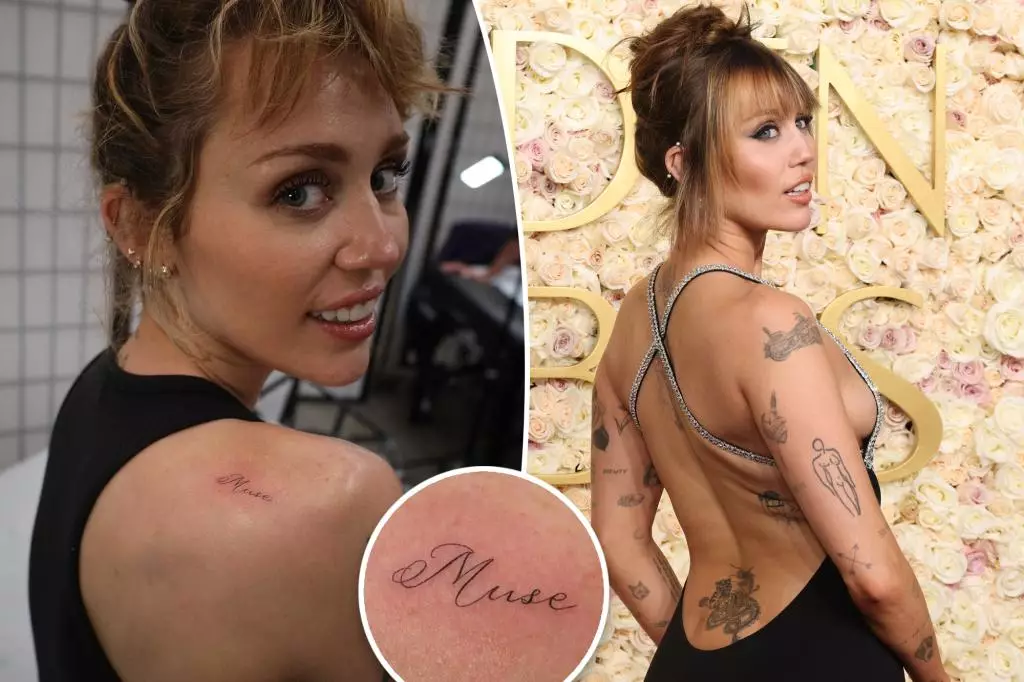Miley Cyrus, a name synonymous with reinvention, continues to capture public gaze not just through her music but also her ink. Recently, she unveiled a new tattoo with the word “Muse” etched delicately below her right shoulder, courtesy of celebrated tattoo artist Michelle Santana. This small yet profound piece seems to echo a deeper story, likely celebrating the influence of her mother, Tish Cyrus, who has played a significant role in her life and career. In a world where tattoos often symbolize unbreakable bonds or cherished memories, the question becomes: To what extent does one’s body art reflect their relationships and evolving identity?
Regret and Reflection
Surprisingly, despite her affinity for body art, Cyrus has openly acknowledged regret over a significant portion of her tattoos. In a candid moment during a recent interview, she remarked that about 80% of her ink choices are decisions she now questions. This seemingly contradictory stance for a figure celebrated for her fearless self-expression raises intriguing queries about the nature of personal branding and authenticity. In a modern culture that often champions spontaneity, what is the value of retrospect? Cyrus, while expressing a lack of desire to completely erase her tattoos, illustrates the struggle artists face: how to evolve without renouncing their past selves.
The Duality of Expression
Cyrus’s journey through tattoos further highlights an important dichotomy: the thin line between self-expression and the permanence of one’s choices. Each piece of her collection carries the weight of its own story—many linked to public relationships and private heartaches. For instance, her numerous tributes to past partners frame her tattoos as not only art but also markers of personal history. This raises a question that resonates with many; can love be immortalized without becoming burdensome? For Cyrus, perhaps it feels like a charming, albeit intense, reminder of her journey through love and self-discovery.
Two Perspectives on Body Art
Interestingly, Cyrus’s inclination towards daintier tattoos seems to reflect a desire for transformation, moving away from bold statements that defined earlier phases of her life. This transition parallels a common trend among many individuals who evaluate their past choices through new lenses as they mature. However, while some view tattoos as permanent reminders of life’s fleeting moments, others argue that they may also represent the very essence of individuality—vivid illustrations of a person’s evolution over time. For Cyrus, the recent tattoo may not just signify a tribute to her mother but also represent a shift in her journey towards a more refined sense of self.
In a celebrity-obsessed society, Cyrus’s revelations about her tattoos compel us to consider our own body art choices. They provoke thought about how memories are etched onto our skin, the meanings we assign to them, and the continuous narrative they weave throughout our lives. Cyrus, with her memento inscribed above her shoulder, invites fans to not just look at her tattoos as mere ink but as stories of growth, remembrance, and sometimes regret.

